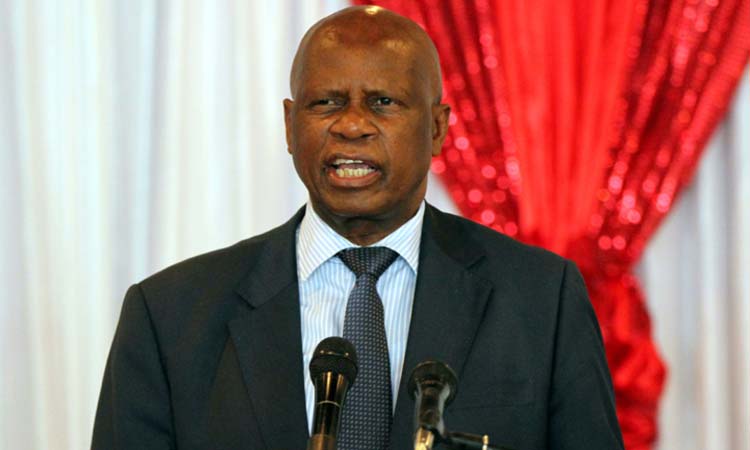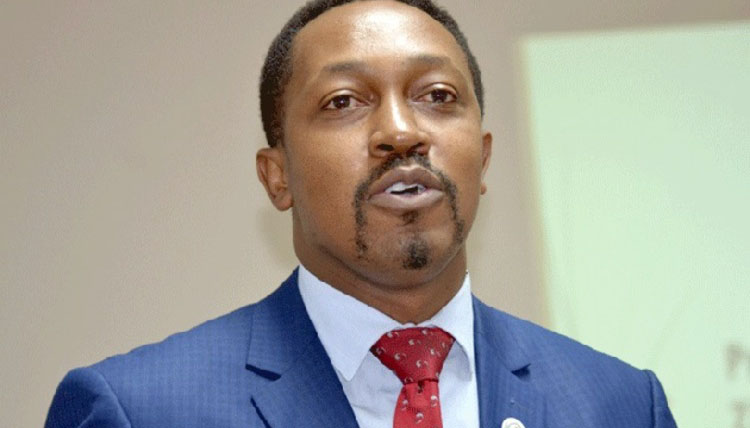
The Sunday Mail

Darlington Musarurwa recently in Durban, South Africa
Zimbabwe’S spirited march to a prosperous economic future will not be encumbered by unflattering tags from merchants of negativity, Finance and Economic Development Minister Patrick Chinamasa has said.
Minister Chinamasa’s remarks follow Zimbabwe’s inclusion on “The Fragile State Index” published by United States think-tank Fund for Peace in collaboration with Foreign Policy magazine.
Harare strongly disputes this, with President Mugabe highlighting Zimbabwe’s high level of development and remarkable literacy rate.
Minister Chinamasa told journalists on the sidelines of the 27th edition of the World Economic Forum in South Africa last week that Zimbabwe was a cog in the regional, continental and global economy.
“For me, there is no justification (for Zimbabwe to be called a fragile state) because we are a very resilient economy; that was a characterisation in order, basically, to outlaw Zimbabwe, to make us marginalised.
“But we have been resisting. You cannot stop people from calling you names. So, when they said we are a fragile state, it was calling us names. When you want to destroy your enemy, you give him bad names so that it becomes easier to destroy…
“We have remained standing, notwithstanding the characterisation. They will continue calling us names because we did what they did not want — that was addressing the inequalities in the land ownership arena. For that, we were characterised ‘fragile’, but we should not be dissuaded by such bad-mouthing, bad names.
“We will just continue as we have been doing; to make sure that we fight those detractors, and we are successful. We have been successful in that regard.”
The economic struggles Zimbabwe is experiencing, he added, were “birth pangs of a new economy”.
“When we go through a revolution like we did, with respect to correcting the historical injustices in the land tenure system, when you go through a revolution there is a cost and we have been paying that cost.
“Part of the characterisation is arising from the fact that we dared correct historical anomalies, and it comes with a cost. And that transition can be quite long, to get to a position where you are quite productive because every revolution destabilises the production value chain.
“It destabilises — no doubt about that — and it happened to us in agriculture. We are now seeking to correct it. You now have new producers in the agriculture sector. We are going to have new economic players in the SMEs, new economic players in the formal manufacturing sector — that takes time to stabilise.
“As a result, I am happy to say that we are now coming out of the woods, and we are, for instance, this year, as I have already announced, revising our (economic) growth targets as we set them out in the 2017 National Budget from 1,7 percent to 3,7 percent.”
Minister Chinamasa, however, cautioned that Zimbabwe required increased productive capacity.
“We need products that can be traded, that can connect markets — regionally and also continentally. So, it is very important for us to be participating in this forum so that we understand the opportunities that are available to us as a nation, but also to impose challenges on ourselves with respect to production.”
Zimbabwe is targeting an export-led economy driven mainly by the agricultural sector.
A bountiful grain harvest is projected this year following President Mugabe’s Specialised Maize Production and Import Substitution Programme (Command Agriculture) and the Presidential Well-Wishers Agricultural Inputs Support Scheme.
The World Economic Forum is a Switzerland-based non-profit organisation that promotes dialogue among governments, the private sector and civil society.



